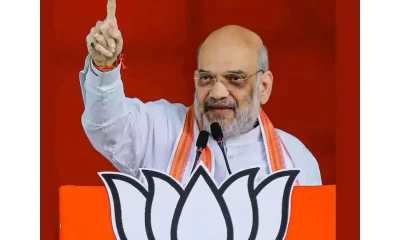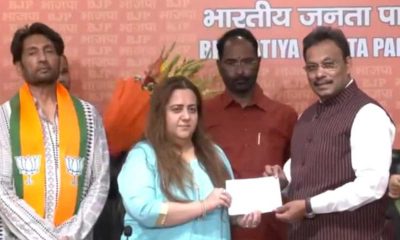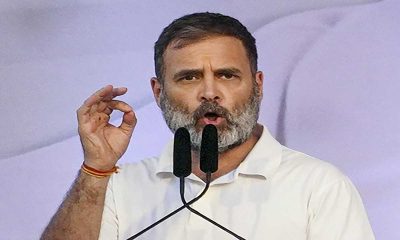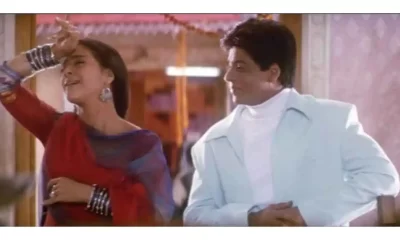India News
BJP unites Left, loses JNU Students Union elections
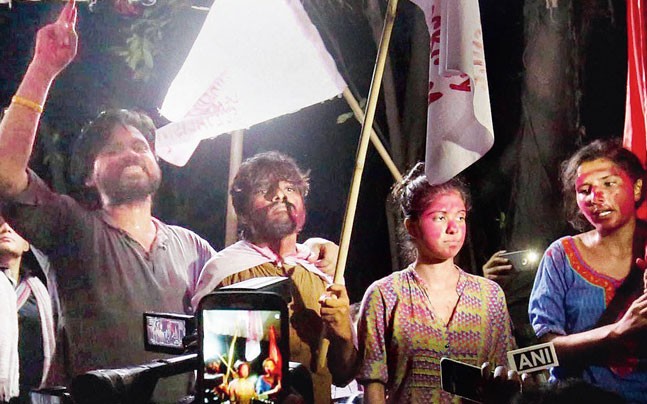
[vc_row][vc_column][vc_column_text]ABVP failed to win elections for any major post in the premier institution but emerged as the second biggest political force in a traditional Left citadel
Despite sustained efforts of the Bharatiya Janata Party (BJP) to ‘saffronise’ at least the politics of Jawaharlal Nehru University (JNU), if not its syllabus and social ambience, a United Left once again trumped in painting the premier institution ‘red’, as the results of the varsity’s students union elections were declared late on Sunday night.
A United Left – brought together in its common resistance to the rising clout of the BJP through its students’ wing, the Akhil Bharatiya Vidhyarthi Parishad (ABVP) and also a Vice Chancellor who has been criticised for pursuing a ‘saffron agenda’ – swept the JNUSU polls for all four major posts of president, vice president, general secretary and vice president. However, the ABVP – which has seen a gradual rise in its political clout in the otherwise traditionally Left-leaning varsity – registered a strong vote-base, coming second in all seats, while the Amberkarite party – Birsa Phule Ambedkar Students’ Association (BAPSA) stood third.
In an expected setback for the Congress-affiliated National Students Union of India (NSUI), all its candidates who were in the running for the top four posts finished a poor fourth – securing fewer votes than those polled for the NOTA (None of the above) option.
Although the Left Unity panel of student bodies AISA-SFI-DSF (All India Students’ Association, Students’ Federation of India, and Democratic Students’ Federation respectively) managed to keep the ABVP away from winning the polls, the significant jump in the NOTA votes should be a cause of concern for those who have won the polls, as it also showcases a growing resentment among students at the varsity against its dominant Left politics. Similarly, for the ABVP, the NOTA votes presents an opportunity – of reaching out to these voters and convincing them to vote for the saffron brigade if red isn’t their colour.
The rise in NOTA votes aside, another cause of concern for the Left candidates in the future should be the dip in voter turnout per cent. This year’s JNUSU polls saw a 56 per cent voter turnout, three per cent less than the previous year’s polls. However, in real terms, this year’s turn out indicates a massive dip since the JNU administration had slashed the number of seats for students at the varsity in the current academic session by a 1,000.
This aside, the Left Unity panel shouldn’t forget that it managed to retain its hold on all key JNUSU posts only because individual Left-affiliated parties managed to set aside their personal differences and contested as a united coalition to take on the BJP-affiliate, which still managed to retain – like the previous year’s elections – the largest vote share polled for one party. If all votes polled were broken down to an average, the ABVP would have secured 950-odd votes for every central post, and over 10 councillor posts at the school-level, primarily from science. And though this is a decline when compared to last year’s 1,200 votes for the ABVP, the dip can also be attributed to greater Left unity, lower voter turnout and a general sentiment among JNU students of resisting the BJP’s interference in the running of the varsity through writs by the Centre that are purportedly executed by a controversial vice chancellor who has on more than a few occasions established his proclivity for the saffron ideology – the latest being his demand for installing a defunct Army tank in the JNU campus to “instill patriotism” in students.[/vc_column_text][/vc_column][/vc_row][vc_row css=”.vc_custom_1505121363370{margin-bottom: 20px !important;border-top-width: 20px !important;border-bottom-width: 20px !important;background-color: #a2b1bf !important;}”][vc_column][vc_column_text]The result:
Out of 4,620 votes polled for the president’s post, AISA’s Geeta Kumari secured 1,506 votes, trouncing Nidhi Tripathi of ABVP by almost 460 votes.
Left Unity panel’s candidates Simone Zoya Khan, Duggirala Srikrishna and Shubhanshu Singh were elected as vice president, general secretary and joint secretary respectively. Srikrishna, an SFI member, with 2,082 votes cast in his favour grabbed the highest number of individual votes for any post and also secured the highest margin of victory.[/vc_column_text][/vc_column][/vc_row][vc_row][vc_column][vc_column_text]A key takeaway of the result is also the rise of the relatively new student outfit BAPSA, which finished third – but with the ABVP ahead by a very narrow lead – on all key seats. By effectively raising Dalit causes and with its combative anti-Left rhetoric, BAPSA has showed that it is now a force to reckon with in JNU students’ politics. In just a few years of formation, they have emerged with a concrete cadre base and a stable vote bank (800-1000 votes of SC/ST and some of the OBC vote, along with the vote of those dissatisfied with the Left parties). BAPSA and ABVP could, in the near future, stand a shot at victory if the Left alliance crumbles or the incumbents don’t perform as per expectations of the students.[/vc_column_text][/vc_column][/vc_row]
Book reviews
The Hill Of Enchantment Review: Ruskin Bond revisits his life as writer
The book not only delineates Ruskin Bond’s journey as a writer but also depicts the changing literary landscape from the 1950s to recent times.
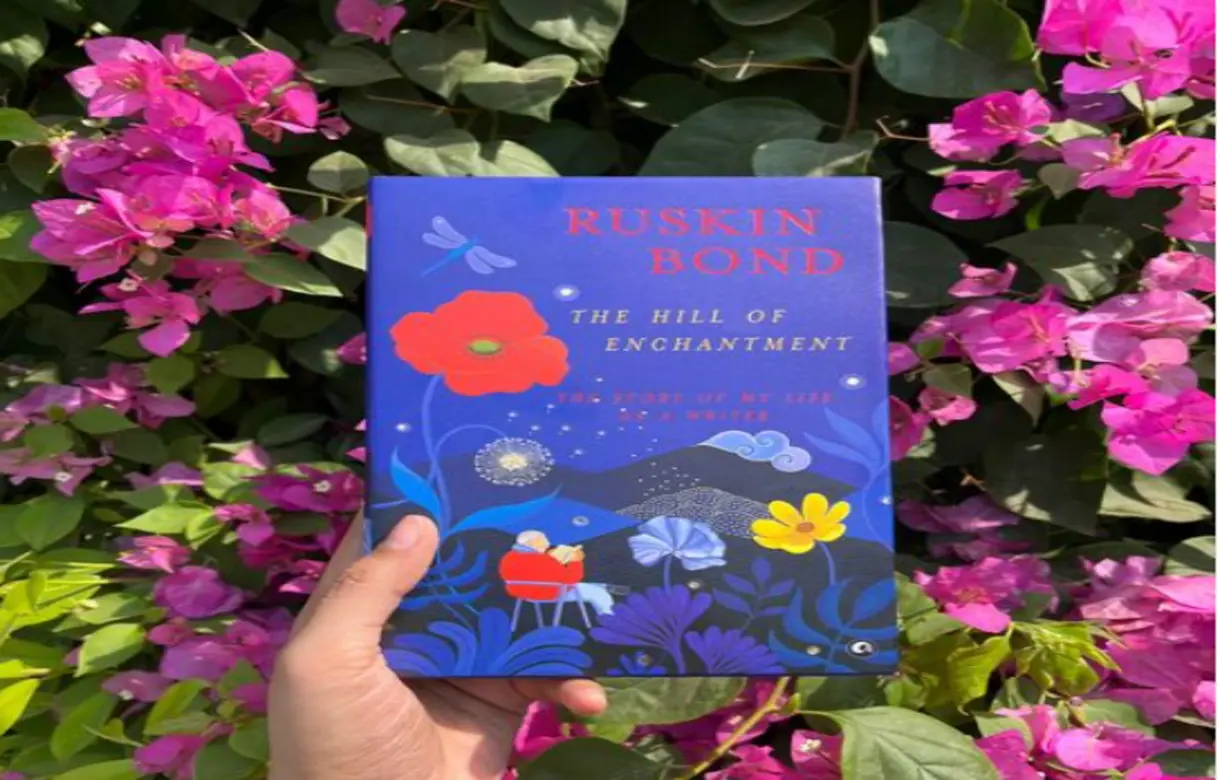
India’s most loved and prolific writer from the hill, who wrote his first book when he was around 17, Ruskin Bond, turned 90 this year. In his seven decade literary journey, the author has written more than 500 novels, short stories, and poems set mostly in the hills and mountains of India.
The Hill Of Enchantment published by Aleph Book Company, is a memoir of his writing journey, with the subtitle, the story of my life as a writer. Bond revisits the people, mountains, railway stations, rooms, and markets that shaped him as an author. He says, characters in his novels and short stories are mostly inspired by the people he met in his life. The author confesses that some characters also portray his adopted family, friends and colleagues.
Expressing that if a writer wishes to create a little magic with his pen he must find a little magic in his life, Ruskin Bond shares that he only has to open his window to see a magical world – clouds racing across the sky. In the book, the author mentioned how Pari Tibba, Fairy Hill, which he could see from his window, and solitude has influenced his books.
In The Hill of Enchantment, Ruskin Bond pens about how his need for privacy and solitude have inspired his first work, The Room on the Roof, published in 1956. He also portrayed how his frequent visits to a railway station led to the story, Time Stops At Shamli and others. Sharing an anecdote, Bond wrote that his frequent visits to railway stations made him so popular, just like a coolie, he did not have to buy a platform ticket to sit at the railway station.
The book also highlights the ordeal of Indian writers in the days dating back to 1950s to get published as compared to modern writers. It pointed out the change in the literary scene in the twenty-first century, which brought literary festivals along with online forums for writers and publishers. The author says, “writers were becoming faces and mini celebrities”.
Ruskin Bond’s book not only delineates his journey as a writer but also stresses on the changing literary landscape from 1950s to recent times. The book is an utter testament for the aspiring writers.
2024 Lok Sabha Elections
Amit Shah claims NDA has already got 310 seats after 5 phases of Lok Sabha elections
Shah was addressing 2 election rallies in Sambalpur where the BJP has fielded Union Minister Dharmendra Pradhan.
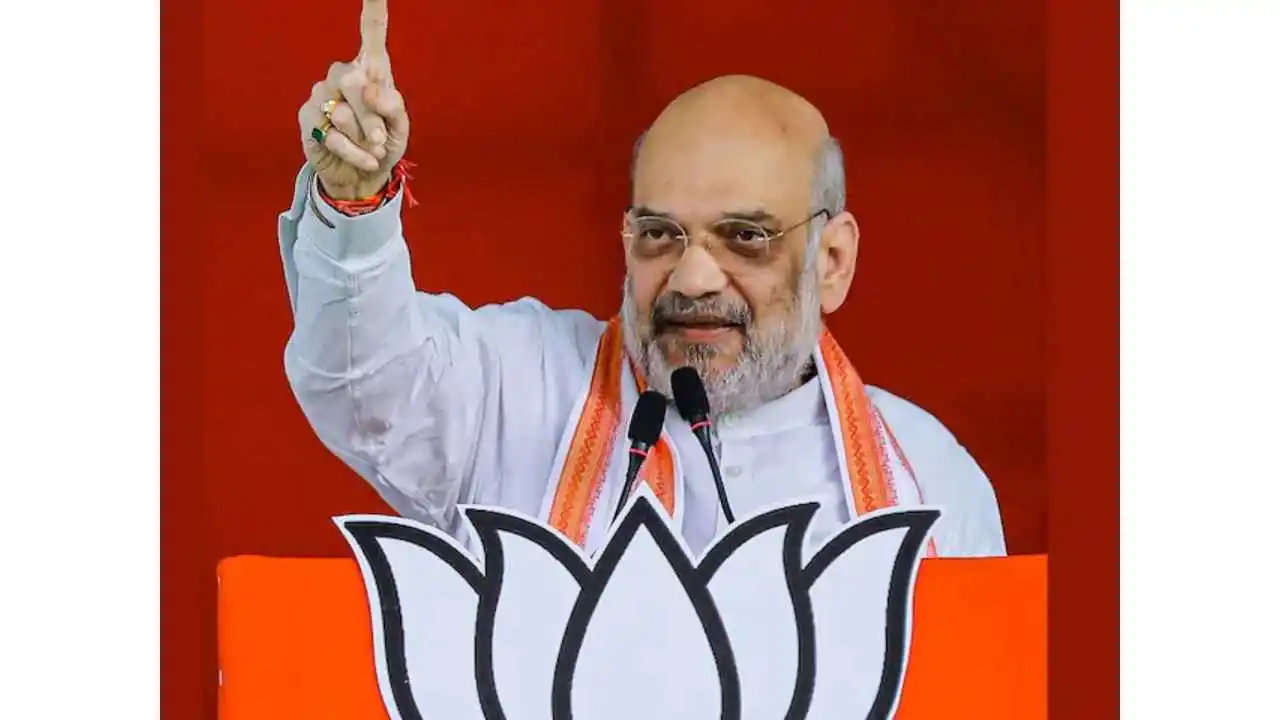
Union Home Minister Amit Shah on Tuesday claimed that the NDA has already bagged 310 seats after the completion of 5 phases of the Lok Sabha polls. He urged the people of Odisha to free the state from babu-raj and allow the BJP to form government at the Centre and also in the state. Shah was addressing 2 election rallies in Sambalpur where the BJP has fielded Union Minister Dharmendra Pradhan.
Shah claimed after the 5th phase of elections, the NDA has already got 310 seats and they will secure 400 plus seats after the 6th and 7th rounds of elections. The union home minister added that Odisha has been ruled by a handful of officers and this election will end the ongoing babu raj in the state.
He said that the tribals of Keonjhar get no benefit even though most of the mines and mineral reserves of the country are located in Keonjhar district. Shah enlisted Modi government’s achievements and said that the prime minister has ensured that there is no terrorism across the country. He added that PoK (Pakistan occupied Kashmir) was with India and it would remain with India.
Shah criticized Congress of being frightened over Pakistan possessing an atom bomb and said PM Modi has given a befitting reply to Pakistan’s terror activities and he does not fear such threat of nuclear bombs. He attacked the previous Congress government for doing nothing for tribals. Shah pointed out that former PM Atal Bihari Vajpayee had formed a separate ministry for tribal affairs while Narendra Modi as the PM has worked to eliminate Naxalism in Odisha, Telangana and Andhra Pradesh.
The Union Home Minister said PM Modi has constituted District Mineral Foundation and given crores of rupees for the development of the tribal region. Shah said the budgetary allocation for tribal affairs has been increased to Rs 1.25 lakh crore during Modi government from Rs 25,000 crore given during the previous UPA regime.
2024 Lok Sabha Elections
Congress accuses PM Modi of communal campaigning, questions his silence on key issues like caste census, reservations
Congress general secretary Jairam Ramesh’s attack came over Modi’s remarks in an interview to the media in which he had said that he has never uttered a word against minorities, and the BJP has not just today but never acted against them.
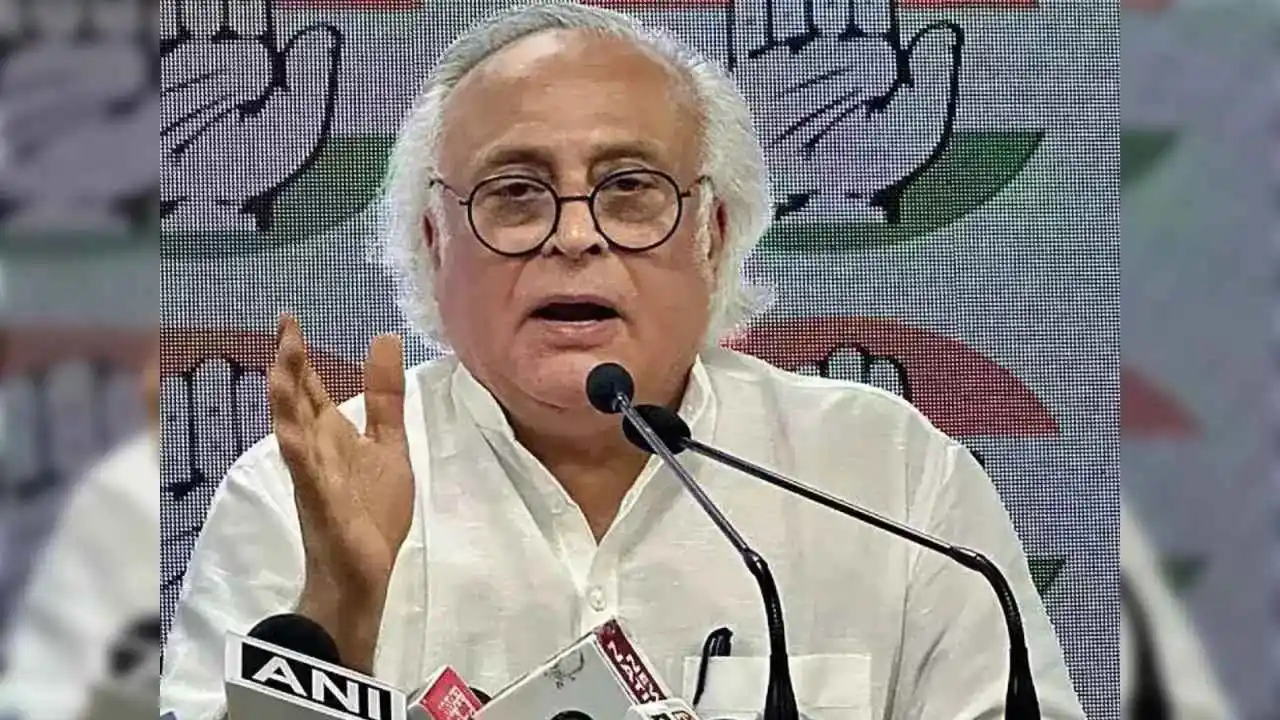
The Congress on Tuesday alleged that Prime Minister Narendra Modi had been indulging in polarisation throughout the election and has prepared a communal pitch, but Congress refused to play on that and pursued its paach nyay agenda. Congress general secretary Jairam Ramesh’s attack came over Modi’s remarks in an interview to the media in which he had said that he has never uttered a word against minorities, and the BJP has not just today but never acted against them.
Jairam Ramesh said that PM Modi’s entire campaign from April 19 has been based on communalisation with the Hindu-Muslim rhetoric throughout and has not talked about Viksit Bharat, issues of the farmers, Modi ki guarantee, women, youth workers, SCs, STs and OBCs.
Speaking about the remarks made by PM Modi on minorities, Ramesh said what nonsense was he talking about? He further added the prime minister is fast losing his memory and he has never had any adherence to truth. Ramesh called PM Modi a jhoothjeevi and said PM Modi does not remember what he said the day before and then claims that he never said it.
Ramesh said the prime minister had raised the issue of Muslim League imprint on the Congress manifesto, the mangalsutra remarks and the allegation that the Congress will give reservations on the basis of religion, which are all bogus statements.
He said this is the prime minister who, when asked some years ago whether he had any remorse at the killings during the Gujarat riots, said even when a small puppy comes under a car, one feels bad. This is the language that he had been using. Ramesh claimed that when Atal Bihari Vajapayee became the prime minister, L K Advani and company wanted a committee to review the basic structure of the Constitution. Ramesh said Congress boycotted that commission and this has always been the objective of the BJP and the RSS.
-
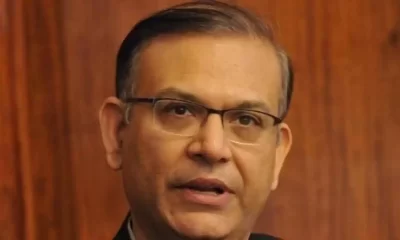
 2024 Lok Sabha Elections10 hours ago
2024 Lok Sabha Elections10 hours agoBJP issues show-cause notice to MP Jayant Sinha for not voting in Lok Sabha Elections
-
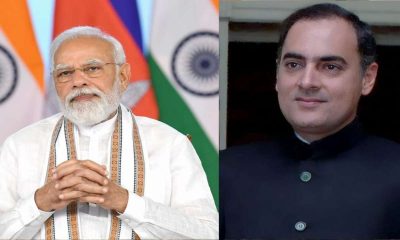
 India News10 hours ago
India News10 hours agoPM Modi pays tribute to former PM Rajiv Gandhi on his death anniversary
-
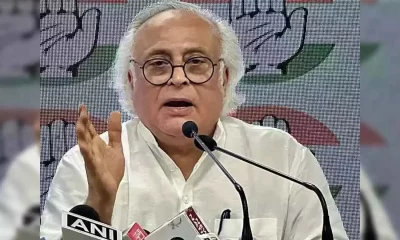
 2024 Lok Sabha Elections4 hours ago
2024 Lok Sabha Elections4 hours agoCongress accuses PM Modi of communal campaigning, questions his silence on key issues like caste census, reservations
-
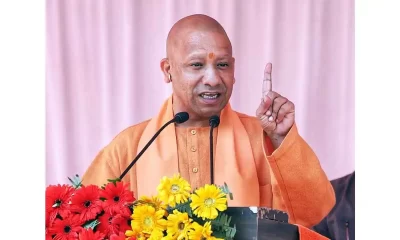
 2024 Lok Sabha Elections6 hours ago
2024 Lok Sabha Elections6 hours agoUP CM Yogi Adityanath says INDIA bloc is planning to loot country by dividing people on caste, religion
-
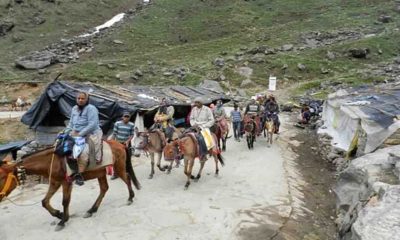
 India News9 hours ago
India News9 hours agoUttarkashi authorities issues order to limit movement of horses and mules on Yamunotri Dham pilgrimage route
-
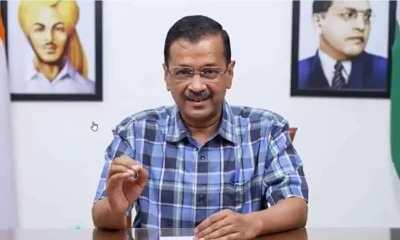
 2024 Lok Sabha Elections8 hours ago
2024 Lok Sabha Elections8 hours agoArvind Kejriwal predicts INDIA bloc will win 300 seats and form next government
-
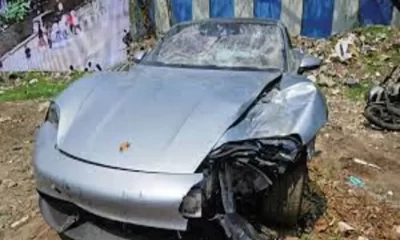
 India News9 hours ago
India News9 hours agoPune police arrest father after son’s fatal Porsche crash, restaurant owner also detained
-

 Entertainment9 hours ago
Entertainment9 hours agoHappy Birthday Mohanlal: Friends, industry colleagues and fans wish Malayalam superstar on his 64th birthday

